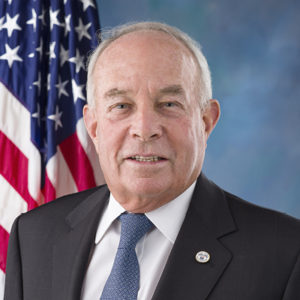Outreach to Vulnerable Populations During the COVID-19 Pandemic
Reading Time: 2 MinutesLast Updated: April 18, 2025
 Last week, over 1,500 people joined me on a national conference call to learn how their organizations can help the Social Security Administration assist our most vulnerable populations during COVID-19. Participants included representatives of the non-profit community, health care organizations, private industry, Federal, State, and local government, and Congress. The response was nothing short of extraordinary and serves as an example of the public service spirit that unites us all.
Last week, over 1,500 people joined me on a national conference call to learn how their organizations can help the Social Security Administration assist our most vulnerable populations during COVID-19. Participants included representatives of the non-profit community, health care organizations, private industry, Federal, State, and local government, and Congress. The response was nothing short of extraordinary and serves as an example of the public service spirit that unites us all.
Now, more than ever, it is vital that we join together to serve our most vulnerable populations. People who struggle with low-income, limited English proficiency, homelessness, or with mental illness, have historically relied on meeting with us in person at our local offices to get the help they need. With our offices currently unable to accept walk-in visitors to protect both our beneficiaries and our work force during the pandemic, it is essential that we continue to engage with the public online, on the telephone, and by appointment for limited, critical situations.
To address the challenge of continuing to serve those who need us most, we’ve joined with external partners to launch a new national outreach campaign. The goal of the campaign is to connect eligible individuals to Supplemental Security Income (SSI) and Social Security Disability Insurance (SSDI) benefits. The SSI and SSDI programs provide critical financial assistance, including life-saving access to healthcare and the Supplemental Nutrition Assistance Program in many cases.
Key components of our outreach campaign include:
- Working with community-based groups that can assist with taking applications for SSI and SSDI.
- Launching a national advertising campaign on TV, radio, and social media, with emphasis on children with disabilities.
- Adding a number of new online tools and informational pages, including:
- Online resources for People Helping Others access our services.
- Online Outreach Materials for Vulnerable Populations for partner groups to use.
- Updated information for Faith-Based and Community Groups, including a new toolkit and fact sheets about SSI and SSDI.
I want to thank the White House Office of Faith-Based and Neighborhood Partnerships for working with us and sharing our website and products with their national network of faith and community leaders.
I also want to thank members of the claimant advocacy community for their collaboration on this campaign. We will feature their perspectives on serving vulnerable populations on this blog site over the coming weeks.
Please be sure to subscribe to this blog so that you receive alerts whenever we publish new articles from our partners. We will also share the latest information about our national outreach campaign here.
Did you find this Information helpful?
Tags: COVID-19, Disability, People Facing Barriers, Social Security benefits
See CommentsAbout the Author
Comments
Comments are closed.

Shannon W.
Hi. I lived with my mom on and off all my life. I’m on SSDI for mental disability. She used to be my proxy but I had 4 county counseling take over. I graduated from them 4 years ago. I didn’t know but they sold moms house on tax sale (Oct. 6, 2020) after she passed away (June 27, 2020). I ONLY have 13 days left to get it back. I had a lady that was going to help me come up with the $2,700 but she was recently involved in a bad car wreck. Can you help me stay in my childhood home???
P.H.
Hi Shannon. We are sorry to hear about your situation. Please visit the U.S. Department of Health and Human Services web page for the many programs and services available to you in your state. For information on public housing assistance visit the U.S. Department of Housing and Urban Development website. We hope this helps!
Angela G.
Can you really help? I’m 77 years old with titanium rods down my back (C2-S1). Walking or doing any housework is extremely difficult. My doctors recommended I have surgery on my back again, and also removal of my gallbladder. I’m on a fixed income (near poverty level) and I cannot have this done due to copays and hospital bills. I have recent MRI’s to verify my condition. Should I not get the surgery soon, I will be paralyzed in near future. Please HELP!! Thank you!, Angela Gail Wing.
.
A.C.
Hi, Angela. We are sorry to hear about your condition and situation. You may be eligible to receive social services from the state in which you live. These services include free meals, housekeeping help, transportation, or help with other problems. To get information about services in your area and find out if you qualify, you will need to contact your state or local social services or welfare office. We hope this helps!